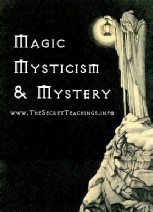




 NEXT
NEXT
 BACK
BACK

Philosophical musings on Quanta & Qualia; Materialism & Spiritualism; Science & Religion; Pragmatism & Idealism, etc.


 Forum
Forum

 Recent Posts
Recent Posts
Post 12. 01/29/2018 continued . . .
Form & Function : Body & Soul
Deism vs Humanism vs Mysticism
The Body/Mind connection is an old philosophical conundrum, and is still not completely resolved, even though Science has proven to be a more reliable way to control the physical world than Magic, except when human minds & bodies are involved1. So the appeal of body/soul mysticism retains its power to influence the minds and bodies of some modern humans.
Since the current revival of classical Deism -- grounded on Reason but tolerant of intuitive religious feelings -- is often confused with several other “spiritual” worldviews, I'll attempt to distinguish my understanding of the Deist philosophy from that of Mysticism & New Ageism on one hand, and on theistic Humanism on the other. First, I'll note that modern Deism has evolved since its beginnings in the post-Enlightenment era, when science & reason first began to challenge religion & tradition as the authority on how & why the world works as it does. But even scholarly officials of traditional religions such as Judaism, Islam, and Christianity have become equivocal on the role of subjective feelings & objective facts for justifying their beliefs & customs.
For example, in Europe, the imperial Catholic Church, claimed the sole authority for selecting their canon of scriptures, and for interpreting the meaning of the written revelation. In its role as a semi-political institution, the Church preferred to rely on officially sanctioned legal documents to rationally resolve any questions of religious faith & practice. Consequently, the church hierarchy tended to discourage any personal revelations, emotional fervors, or mystical connotations. Although contemplative mystics & amazing magicians were popular with the common folks, their spontaneity & unconventional methods challenged the established order, so they were always relegated by church authorities to the fringes of the official domain of most organized religions.
In the United States, since the 1960s, that legalistic old-time religion was considered by young people to be rigid, stale and uninspiring. So, as an earlier generation of religious rebels had turned to Charismatic religions for their dopamine fix of emotional enthusiasm, many spirit seekers turned to anti-rational Pagan & Eastern religions, with their emotional freedoms, and exotic customs. The so-called New Age movement resulted from that rejection of both "sterile" cultural modernism and of "stifling" religious traditions. I suspect that the 21st century emergence of internet Deism may have been a similar response to religious & political regimentation, but without rejection of the rigorous rational scientific approach to truth. Yet, once-burned by dictatorial dogma, Deists to be skeptical of sanctimonious systems, and guard their innate feelings with rational judgment.
Post 12 continued . . . click Next
New Ageism :
The New Age movement of the 1960s was a cultural reaction to Modernism, Materialism, Scientism, and especially to the exclusivist theology of Western Religions. Like Deism, it has no central organization or official dogma. And like Deism, it has an interest in spirituality, mysticism, holism, and environmentalism. But, unlike Deism, it has abandoned the scientific search for pragmatic facts, in favor of feel-good fantasies. In place of rigorous rational empirical methods, it dabbles in subjective Postmodern pseudoscience. See Wikipedia for more.


1. Faith healing doesn’t seem to work on animals that lack the power of abstract words and symbols to create vivid mental images (and associated feelings) of things that are not real.





 NEXT
NEXT
 BACK
BACK




 Recent Posts
Recent Posts

